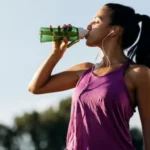Hydration isn’t just about drinking water when you’re thirsty. Staying properly hydrated throughout the day is vital for maintaining energy, supporting bodily functions, and promoting overall health. Dehydration can lead to fatigue, headaches, impaired cognitive function, and even serious health complications over time.
In this comprehensive guide, we’ll explore practical strategies, hydration-friendly foods, lifestyle tips, and how to build daily habits that ensure you stay well-hydrated from morning to night.
Why Hydration Matters
Water makes up around 60% of the human body. It’s essential for:
- Regulating body temperature
- Supporting digestion and nutrient absorption
- Lubricating joints
- Protecting organs and tissues
- Facilitating cellular processes
Even mild dehydration can reduce physical and mental performance. Athletes, office workers, students, and everyone in between benefit from consistent hydration.
Daily Water Intake Guidelines
There’s no one-size-fits-all, but general guidelines from the National Academies of Sciences suggest:
| Group | Recommended Daily Water Intake |
|---|---|
| Men | 3.7 liters (approx. 13 cups) |
| Women | 2.7 liters (approx. 9 cups) |
| Children | 1.0 – 1.6 liters |
| Pregnant Women | 3.0 liters |
| Athletes | Varies (extra based on activity level) |
Factors that increase your need for hydration include physical activity, hot climates, illness, pregnancy, and breastfeeding.
Signs of Dehydration

Recognizing early symptoms can help prevent more serious issues:
- Dry mouth or lips
- Fatigue
- Dizziness or lightheadedness
- Dark yellow urine
- Headaches
- Confusion or irritability
If you’re feeling any of these regularly, you might not be drinking enough.
Tips to Stay Hydrated All Day
- Start Your Morning with Water
After hours of sleep, your body is dehydrated. Begin the day with a glass or two of water to jumpstart hydration. - Carry a Water Bottle Everywhere
Invest in a reusable bottle. Having it on hand acts as a constant reminder. - Set Hydration Reminders
Use phone alarms or hydration tracking apps to prompt regular sipping. - Infuse Your Water with Flavor
Add natural flavors like lemon, cucumber, mint, or berries to make water more appealing. - Drink Before You’re Thirsty
Thirst is a late signal. Aim to sip water regularly throughout the day. - Match Water Intake to Activity Level
Increase your intake if you’re exercising, sweating, or exposed to heat. - Use a Straw
Drinking through a straw can subconsciously lead to higher water consumption.
Hydrating Foods to Add to Your Diet
Food contributes about 20% to daily fluid intake. Incorporate water-rich foods like:
| Food | Water Content (%) |
|---|---|
| Cucumber | 96% |
| Watermelon | 92% |
| Strawberries | 91% |
| Lettuce | 95% |
| Celery | 95% |
| Zucchini | 94% |
| Oranges | 86% |
| Yogurt | 88% |
Hydration Myths and Misconceptions
- Myth: You must drink 8 glasses of water a day.
Truth: Needs vary by person, diet, climate, and activity level. - Myth: Coffee and tea dehydrate you.
Truth: While they have mild diuretic effects, their net effect still contributes to hydration. - Myth: Clear urine always means you’re well-hydrated.
Truth: Extremely clear urine might indicate overhydration and electrolyte imbalance.
Special Considerations for Different Groups
- Athletes: Require more fluids and electrolytes. Use electrolyte-replenishing drinks during extended physical activity.
- Elderly Adults: Reduced thirst response means they need intentional hydration reminders.
- Children: Need encouragement and access to fluids throughout the day.
- Pregnant/Breastfeeding Women: Require more fluids to support increased blood volume and milk production.
Using Technology to Stay Hydrated
- Apps: Hydro Coach, WaterMinder, MyFitnessPal
- Smart Bottles: HidrateSpark, Thermos Smart Lid
- Wearables: Some fitness trackers include hydration reminders
These tools can help build and maintain hydration habits.
Hydration and Mental Performance

Even 1-2% dehydration can impair focus, short-term memory, and mood. Students and professionals benefit from structured hydration schedules during study or work periods.
Hydration at Work
Long hours at a desk often lead to unintentional dehydration. Strategies include:
- Keeping a water bottle at your desk
- Taking hydration breaks
- Drinking a glass of water with every coffee or snack
Hydration During Travel
Planes and long drives can quickly dehydrate you. Tips:
- Avoid alcohol and excessive caffeine
- Drink before and during the flight
- Carry an empty bottle through airport security to refill afterward
ALSO READ: How to Start Saving Money Every Month?
Conclusion
Hydration is foundational to health, energy, and well-being. With the right habits and awareness, staying hydrated doesn’t have to be a challenge. Start your day with water, eat hydrating foods, listen to your body’s cues, and use technology to your advantage. Whether you’re at the gym, desk, or traveling, keeping up your fluid intake will help you feel and perform your best.







